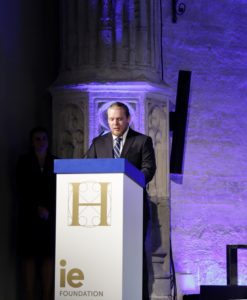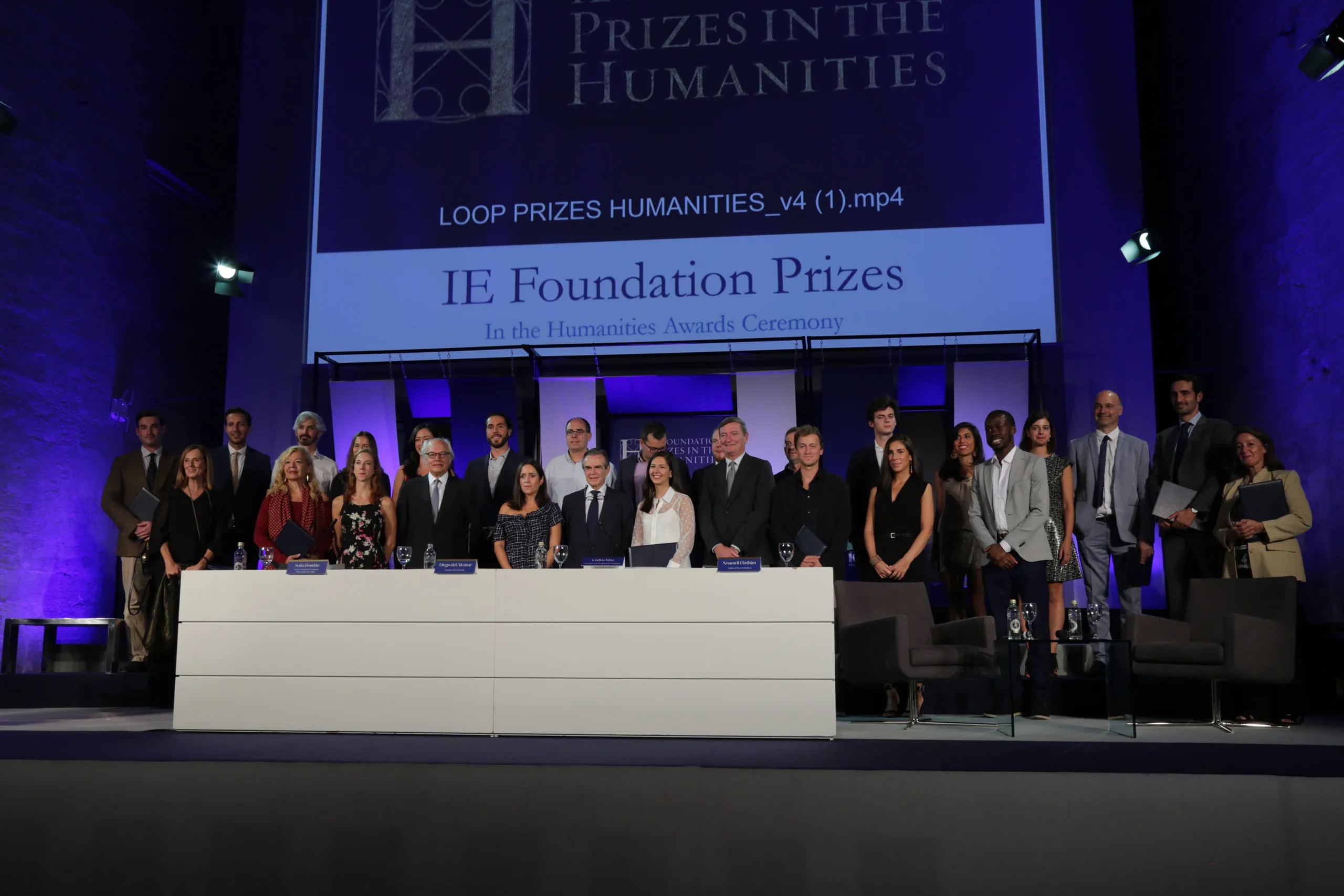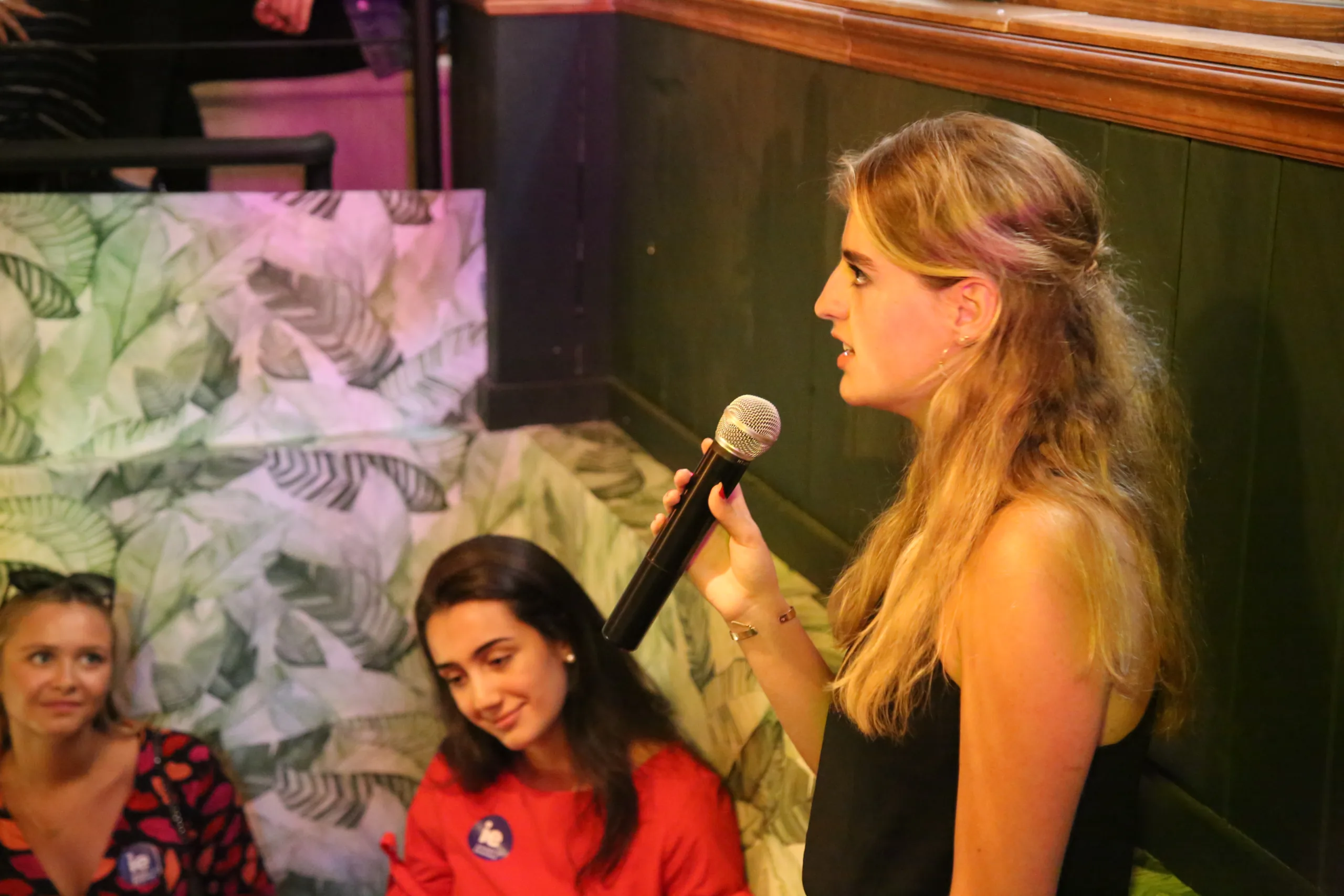SEGOVIA – On Thursday September 19th, the Fourth Edition of IE Prizes in the Humanities took place in the Segovia Campus. The ceremony awarded prizes in different categories, including Short Story, Poems, Video, Photography, and Short Essay in both English and Spanish.
We interviewed some of the winners of the different categories to get some insight on their process.
The first interview was with British International MBA student Jack Straker, with a poem awarded Special mention entitled Madonna. We asked how he started to become involved in poetry writing, Jack answered “I don’t really discuss my emotions. I write poems to work out my emotions”. His recent new-found love shifted his poem style to “positive poetry writing, as a celebration of love”.
His previous analysis of poems revealed “cracks” of past relationships. He added that poems are a “really good way of introspection. When you write a poem, you subconsciously write things you didn’t think of”. Poetry, he finally adds, “is a mirror of the soul”.
Our second interviewee, US International MBA student Ryan Secrest, with a short essay awarded third prize From Avoidance to Empathy: Rediscovering Decency in a World Afraid of Difference.
He commented on how he started writing because “I had a lot of thoughts I was thinking about, and this was a good excuse to put it in writing”. His main objective was to “clearly articulate and simplify complex thoughts” – the topic, which was not being afraid of connecting with people who are different from you was very broad and thus “I had to stay focused on the direction that I wanted to take in the essay”.
Finally, writing this short story and winning a prize “gave me confidence, as I don’t consider myself a writer. The act of producing tangible things for other people is a good creative exercise. I’ve learned to respect what people create, and not just criticize”. 
Our third interviewee, Spanish Bachelor in Architecture student Irene Cávonas wrote a poem entitled Tortuoso Tautograma, winning 1st prize in the Poetry Category in Spanish. For her this was more of an exercise in which she wanted to describe herself, but it “ended up being the description of my relationship with writing”. The technicality of the poem did not inhibit Irene from conveying a lot of feelings.
For Irene writing this poem was a very good way to organize my own mind: “I write to explain to myself what my feelings are”. Her message to all people who read her poem is to “read this poem from the first person – you don’t need to understand me when you read this poem. You need to find it in yourself”.
Our final interviewee was the first prizewinner in the English short story category entitled The Green-Eyed Man, Adam Rose. Adam, a US second-year Business Administration and International Relations student, wanted to “bring to light [a] hurtful and troubling past”.

The process of writing was “full of ups and downs; it was its own adventure – sad and purposeful”. Adam finally noted that “something doesn’t have to be happy to be important”. Asking him what he wanted the readers to take away from his short story, Adam responded that he wants “to give them a moment of pause”.
With these interviews, one can see that each of these winners write for their own personal well-being. Writing is a way to let one’s emotions out, to deal with life’s difficulties. And IE with one of the core values Humanities, allows students from every degree to express themselves on paper, video and photography.







